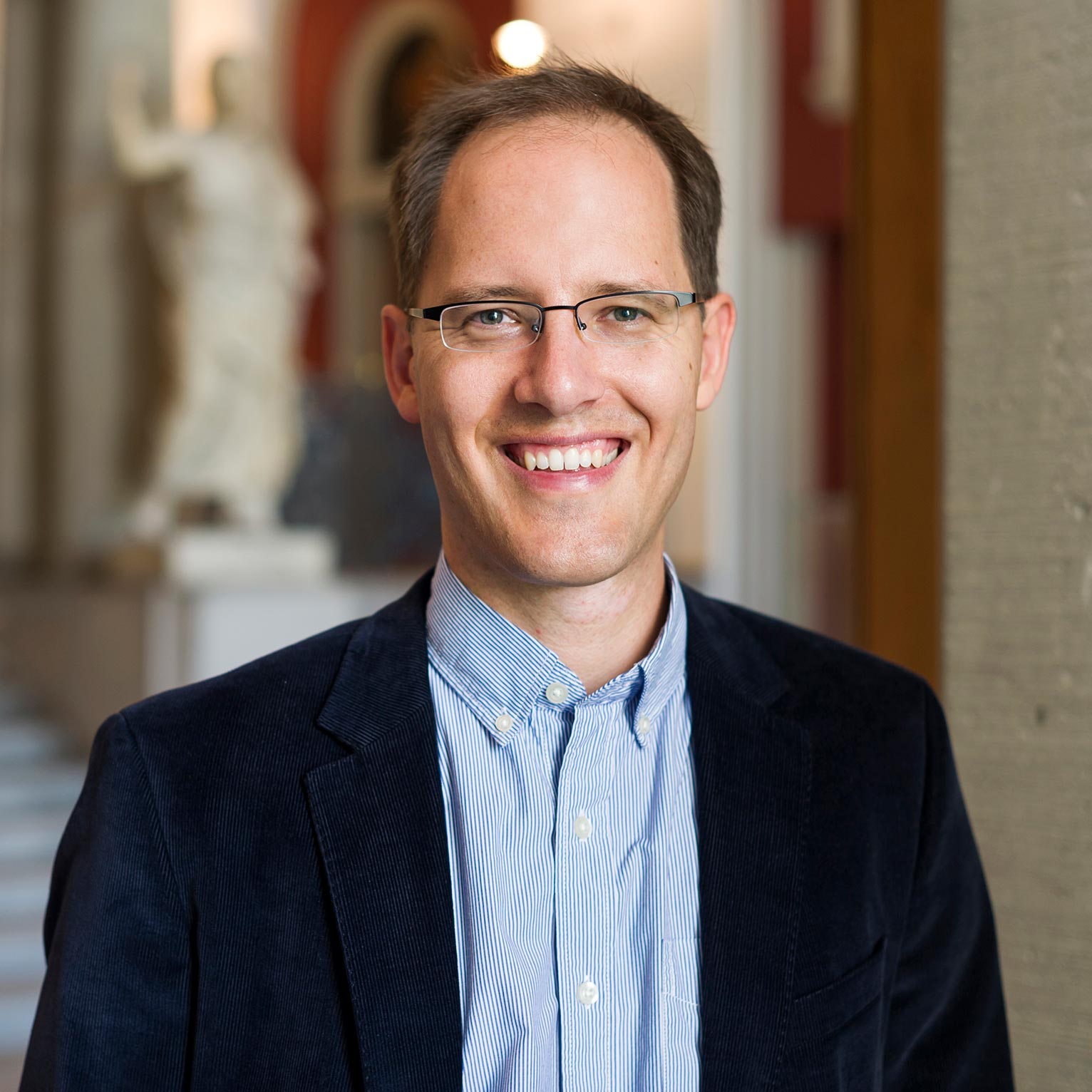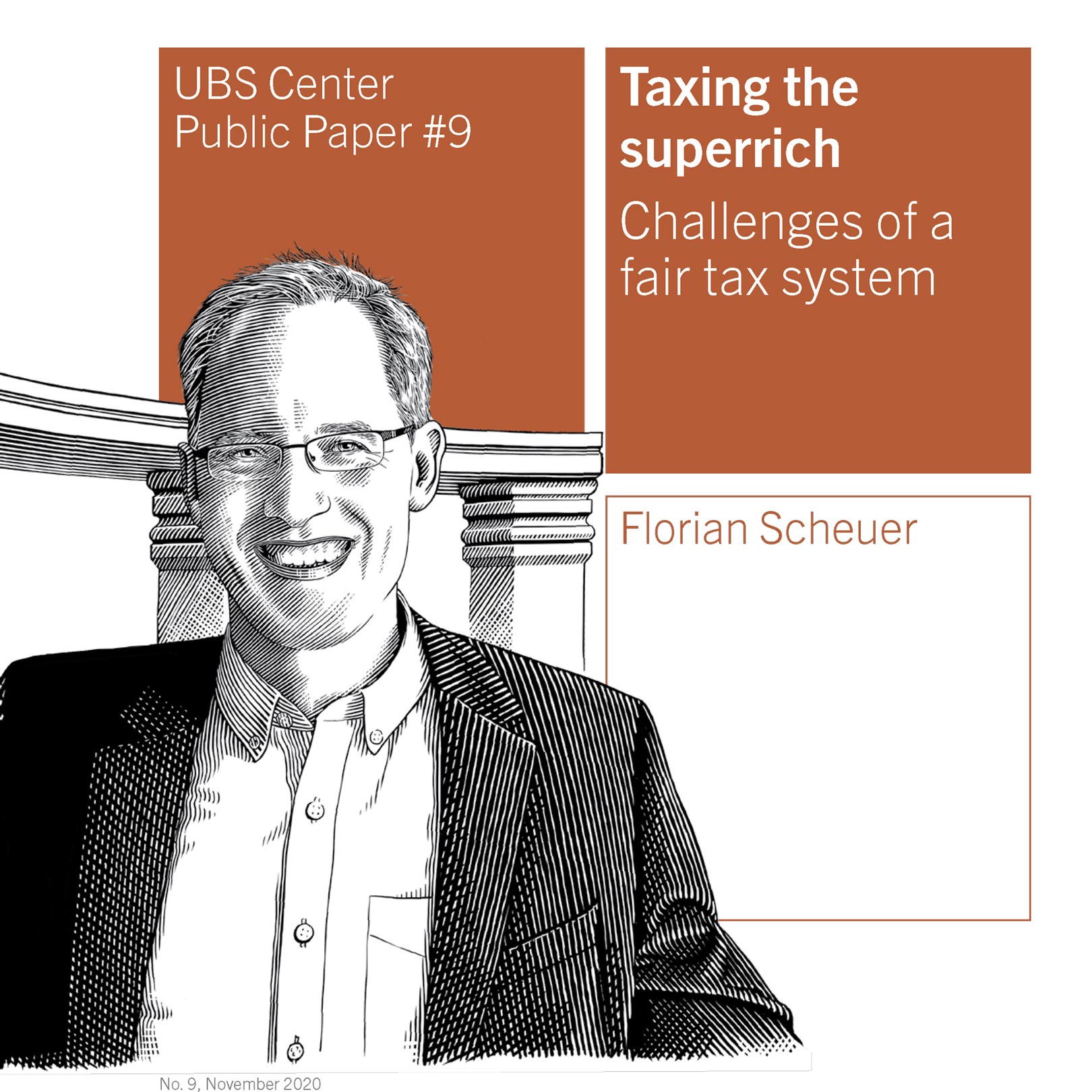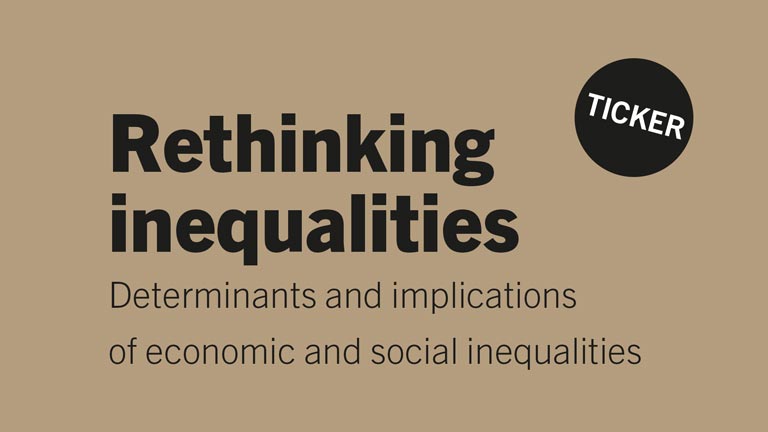Webinar: Taxing the superrich
Video
Webinar
Based on his research on taxation, Florian Scheuer explores the various approaches of how to tax the supperrich more effectively as a measure to create a fairer tax system. His data show not only great differences in income and wealth inequalities, but also in tax systems and policies across OECD countries. These differences are interlinked with the way the superrich are taxed in different countries, especially regarding income and wealth. Scheuer provides an overview of the tax situation the superrich currently face and evaluates various reform proposals. He also reviews the pros and cons of wealth taxes versus alternative policies that achieve similar objectives – such as Joe Biden’s reform plans for the US tax system. Concluding, Scheuer identifies a possible solution for fixing capital taxation, suggesting a retrospective accrual tax where the statutory tax rate rises with the holding period, but the tax is only assessed upon realization of capital gains.
This session was supported by the Centre for Economic Policy Research (CEPR).
Based on his research on taxation, Florian Scheuer explores the various approaches of how to tax the supperrich more effectively as a measure to create a fairer tax system. His data show not only great differences in income and wealth inequalities, but also in tax systems and policies across OECD countries. These differences are interlinked with the way the superrich are taxed in different countries, especially regarding income and wealth. Scheuer provides an overview of the tax situation the superrich currently face and evaluates various reform proposals. He also reviews the pros and cons of wealth taxes versus alternative policies that achieve similar objectives – such as Joe Biden’s reform plans for the US tax system. Concluding, Scheuer identifies a possible solution for fixing capital taxation, suggesting a retrospective accrual tax where the statutory tax rate rises with the holding period, but the tax is only assessed upon realization of capital gains.
This session was supported by the Centre for Economic Policy Research (CEPR).

Challenges of a fair tax system
Florian Scheuer's new Public Paper provides an overview of the tax situation the superrich currently face and evaluates various reform proposals. We emphasize that the incomes of the superrich are qualitatively different from others. Some are “superstars,” for whom small differences in talent are magnified into much larger earnings differences, while others work in winner-take-all markets, meaning that their effort to climb the ladder of success reduces the returns to others. Moreover, the discussion about tax rates must be accompanied by attention to the tax base, with a special focus on capital gains, which comprise a large fraction of the taxable income of the superrich. We also review the pros and cons of wealth taxes versus alternative policies that achieve similar objectives. While a dozen OECD countries levied wealth taxes in the recent past, only three retain them at present. Only Switzerland raises a similar fraction of revenue with its wealth tax as the recent U.S. proposals, therefore serving as a useful example.
You can download a free copy here.
Florian Scheuer's new Public Paper provides an overview of the tax situation the superrich currently face and evaluates various reform proposals. We emphasize that the incomes of the superrich are qualitatively different from others. Some are “superstars,” for whom small differences in talent are magnified into much larger earnings differences, while others work in winner-take-all markets, meaning that their effort to climb the ladder of success reduces the returns to others. Moreover, the discussion about tax rates must be accompanied by attention to the tax base, with a special focus on capital gains, which comprise a large fraction of the taxable income of the superrich. We also review the pros and cons of wealth taxes versus alternative policies that achieve similar objectives. While a dozen OECD countries levied wealth taxes in the recent past, only three retain them at present. Only Switzerland raises a similar fraction of revenue with its wealth tax as the recent U.S. proposals, therefore serving as a useful example.
You can download a free copy here.

Public Paper (video summary)
Press
«Die Erbschaftsteuer müsste viel beliebter sein» Die Zeit Interview mit Florian Scheuer vom 9.11.2020 lesen
Program overview
| Research slam: (In-)Equality and prosperity |
Wednesday, 21.10.2020 | 16:30–17:30 (CET) Moderator: Nir Jaimovich Speakers: participants as listed |
| Panel session: Inequality - facts and consequences |
Wednesday, 28.10.2020 | 16:00–17:15 (CET) Moderator: James Mackintosh Speakers: Janet Currie, David Dorn, Branko Milanovic |
| Webinar: Taxing the superrich |
Tuesday, 3.11.2020 | 16:00–17:00 (CET) Speaker: Florian Scheuer |
| Keynote lecture: Inequality and the future of capitalism |
Wednesday, 11.11.2020 | 18:00–19:00 (CET) Speaker: Nobel Laureate Sir Angus Deaton |
| Research slam: (In-)Equality and prosperity |
Wednesday, 21.10.2020 | 16:30–17:30 (CET) Moderator: Nir Jaimovich Speakers: participants as listed |
| Panel session: Inequality - facts and consequences |
Wednesday, 28.10.2020 | 16:00–17:15 (CET) Moderator: James Mackintosh Speakers: Janet Currie, David Dorn, Branko Milanovic |
| Webinar: Taxing the superrich |
Tuesday, 3.11.2020 | 16:00–17:00 (CET) Speaker: Florian Scheuer |
| Keynote lecture: Inequality and the future of capitalism |
Wednesday, 11.11.2020 | 18:00–19:00 (CET) Speaker: Nobel Laureate Sir Angus Deaton |
Forum for Economic Dialogue
Special times call for special measures. That is why our annual forum this year took place online. Despite the change in format, we had sought to maintain our customary standards. We had a series of events in store, focusing on different aspects of inequality – a topic that has become even more important in light of the global pandemic and its devastating consequences, which has hit many of the most vulnerable people in the world particularly hard. Visit our event hub for timely updates and background information.
Special times call for special measures. That is why our annual forum this year took place online. Despite the change in format, we had sought to maintain our customary standards. We had a series of events in store, focusing on different aspects of inequality – a topic that has become even more important in light of the global pandemic and its devastating consequences, which has hit many of the most vulnerable people in the world particularly hard. Visit our event hub for timely updates and background information.

Speakers
Florian Scheuer received his PhD from MIT in 2010. He is interested in the policy implications of rising inequality, with a focus on tax policy. In particular, he has worked on incorporating important features of real-world labor markets into the design of optimal income and wealth taxes. These include economies with rent-seeking, superstar effects or an important entrepreneurial sector, frictional financial markets, as well as political constraints on tax policy and the resulting inequality. His work has been published in the American Economic Review, the Journal of Political Economy, the Quarterly Journal of Economics and the Review of Economic Studies, among other journals. In 2017, he received an ERC starting grant for his research on “Inequality - Public Policy and Political Economy.” Before joining Zurich, he was on the faculty at Stanford, held visiting positions at Harvard and UC Berkeley and was a National Fellow at the Hoover Institution. He is Co-Editor of Theoretical Economics and Member of the Board of Editors of the Review of Economic Studies. He is also a Co-Director of the working group on Macro Public Finance at the NBER. He has commented on tax policy in various US and Swiss media outlets.
Ernst Fehr received his doctorate from the University of Vienna in 1986. His work has shown how social motives shape the cooperation, negotiations and coordination among actors and how this affects the functioning of incentives, markets and organisations. His work identifies important conditions under which cooperation flourishes and breaks down. The work on the psychological foundations of incentives informs us about the merits and the limits of financial incentives for the compensation of employees. In other work he has shown the importance of corporate culture for the performance of firms. In more recent work he shows how social motives affect how people vote on issues related to the redistribution of incomes and how differences in people’s intrinsic patience is related to wealth inequality. His work has found large resonance inside and outside academia with more than 100’000 Google Scholar citations and his work has been mentioned many times in international and national newspapers.
Florian Scheuer received his PhD from MIT in 2010. He is interested in the policy implications of rising inequality, with a focus on tax policy. In particular, he has worked on incorporating important features of real-world labor markets into the design of optimal income and wealth taxes. These include economies with rent-seeking, superstar effects or an important entrepreneurial sector, frictional financial markets, as well as political constraints on tax policy and the resulting inequality. His work has been published in the American Economic Review, the Journal of Political Economy, the Quarterly Journal of Economics and the Review of Economic Studies, among other journals. In 2017, he received an ERC starting grant for his research on “Inequality - Public Policy and Political Economy.” Before joining Zurich, he was on the faculty at Stanford, held visiting positions at Harvard and UC Berkeley and was a National Fellow at the Hoover Institution. He is Co-Editor of Theoretical Economics and Member of the Board of Editors of the Review of Economic Studies. He is also a Co-Director of the working group on Macro Public Finance at the NBER. He has commented on tax policy in various US and Swiss media outlets.
Ernst Fehr received his doctorate from the University of Vienna in 1986. His work has shown how social motives shape the cooperation, negotiations and coordination among actors and how this affects the functioning of incentives, markets and organisations. His work identifies important conditions under which cooperation flourishes and breaks down. The work on the psychological foundations of incentives informs us about the merits and the limits of financial incentives for the compensation of employees. In other work he has shown the importance of corporate culture for the performance of firms. In more recent work he shows how social motives affect how people vote on issues related to the redistribution of incomes and how differences in people’s intrinsic patience is related to wealth inequality. His work has found large resonance inside and outside academia with more than 100’000 Google Scholar citations and his work has been mentioned many times in international and national newspapers.